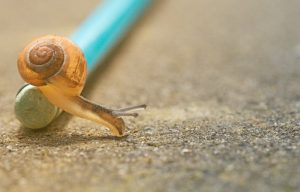By Michaela Lo, Global Challenges Doctoral Centre PhD student based in the School of Anthropology & Conservation
My PhD journey began on a winter morning in January, brimming with ideas and enthusiasm for my prospective research in central Indonesia. Two months on, scientific conferences and PhD training courses have been cancelled or moved online, and any initial fieldwork plans have been put on hold. As stricter measures are being put in place to reduce the transmission of the virus, tensions are running high, and the media coverage on the pandemic has triggered panic across the world.
In times like these when you feel hopeless and overwhelmed with anxiety, there is a temptation to be idle and paralysed by it all. At the same time, the scientific community are bonding now more than ever to unite and find innovative ways to adapt to the drastic transitioning of our new lifestyles. What can help give us momentum is to see these challenges as a horizon of opportunities. Here, I thought I would share some useful tips that have helped me adapt and stay on top of life and work.
Worry and stress
Your health and well-being are bigger priorities than your PhD research. If you have many worries and anxieties buzzing around in your head, write them out, identify what is in your control, and what isn’t. Talk to others and see how they are coping.
In addition, take this as an opportunity to enjoy the fact that you can take things slow! My friend told me she that looks forward to waking up without the worry of facing traffic, leisurely brushing her hair in the morning, and investing more time into cooking scrumptious meals. Slowing down help put things into perspective and calm the mind.

Cancelled conferences and training courses
Conferences and workshop organisers have been fast to respond to the global social distancing measures and are now starting to look at digitalising these events, so keep your eyes peeled for those! Furthermore, there is a host of webinars and online training courses available online; to start off, the Graduate School is offering one-to-one Researcher Development Workshops online, the Global Challenges Doctoral Centre (GCDC) is hosting several virtual sessions in the coming months and here is list of online courses offered by Ivy leagues schools.
Dealing with uncertainty
In this current climate, things are ever changing, so don’t worry too much about long term goals. Our supervisors have tasked us with developing a 2-4 week plan outlining our work and activities. Try to prioritise things that will have a higher certainty of happening.

Working from home
Routine is key to adapting. There are various blogs that provide advice on how to work effectively from home (e.g. here) BUT don’t feel guilty if you are not being productive right off the bat. Everyone needs time so don’t compare with others, it is all about trial and error. Try different ways to create your routine and find what works for you. Everyone is going at their own pace.
Lack of motivation
Each day, I try to give myself bitesize and manageable tasks that are achievable so that I can give myself a good ol’ pat on the back for accomplishing something. This doesn’t need to be work orientated, it could simply be creating a workspace at home or organising your file folder on your computer. Small wins can help us push through, one day at a time.
New materials and resources are rapidly evolving and growing to help us adapt to our new lifestyles. Online platforms such as Twitter and WildHub (an online community for conservation professionals) are a great way to connect with other scientific researchers and PhD students to network and share new ideas.
And there you have it. It may seem daunting at first, but in years to come, we will be able to brag to our grandkids that we managed to carry out our PhDs amidst a global pandemic. Wouldn’t that be a neat story.
Additional Resources for Kent Postgraduates

